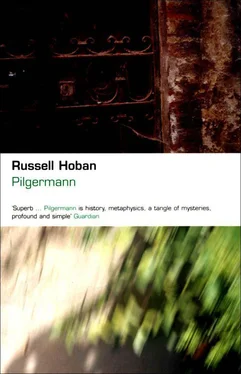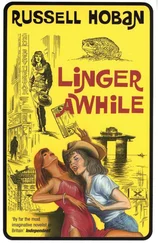With the mountain continually in my eyes I entered that city quick with life, with sound and motion and colour; that city quick with wealth, quick with thought. I understood immediately what it was: it was what in one form or another comes between the pilgrim and Jerusalem. One says, ‘“If I forget thee, O Jerusalem!”’ and then one forgets Jerusalem and life for a time is sweet in Antioch. I wanted to embrace everything — domes and minarets and the shadows of awnings, even the cynical camels with their swaying loads of the goods of this world. In my heart I embraced the Mittelteufel, I said, ‘Perhaps there is no Jerusalem, perhaps nothing is required of me. Perhaps there is only Antioch.’
Bembel Rudzuk said, ‘There is Jerusalem, and whatever is required of you is required; but in this present moment is Antioch and you are here to do what will be done by you here.’ The air in the courtyard of Bembel Rudzuk’s house was misted by a fountain, passing, passing, not for ever. ‘We are brothers,’ said Bembel Rudzuk, and embraced me.
‘What am I?’ I said. ‘I am a eunuch, I am cut off from my generations, I am not a man, I am nothing.’ I wept by the silvery plashing of the fountain.
Bembel Rudzuk said, ‘What say your Holy Scriptures? “Let not the eunuch say, I am a dry tree.”’
‘But I am a dry tree,’ I said.
‘Listen!’ said Bembel Rudzuk. He had got a Greek Bible and was reading to me:
‘Thus saith the Lord to the eunuchs,
as many as shall keep my sabbaths,
and choose the things which I take pleasure in,
and take hold of my covenant; I will give to them
in my house and within my walls an honourable place,
better than sons and daughters: I will give them an everlasting
name, and it shall not fail.’
‘In the Hebrew it doesn’t say “fail”,’ I said. ‘In the Hebrew it says “be cut off”:
‘Even unto them will I give in my house
and within my walls a monument and a memorial
better than sons and daughters;
I will give them an everlasting memorial,
that shall not be cut off.
‘Tell me if you can, what everlasting memorial is there better than sons and daughters? And how shall it not be cut off?’
‘Better than sons and daughters is to be with the stillness that is always becoming motion,’ said Bembel Rudzuk. ‘And in being with this stillness-into-motion there is a continuity that is not cut off.’
The words rattled on my head like pebbles on a roof. ‘Where am I?’ I said.
‘What do you mean?’ said Bembel Rudzuk.
‘In the dark wood with murderers, with the headless corpse of the tax-collector and the maggots I knew where I was,’ I said. ‘I had a whereness to be in. Now I don’t know where I am, I don’t have where to be.’
‘Let me show you something,’ he said. Taking me into the house he pointed to a geometric pattern of tiles ornamenting the front of a dais. ‘Look,’ he said.
I looked. The pattern went its way as such patterns do.
‘This pattern is contiguous with infinity,’ said Bembel Rudzuk. ‘Once the mode of repetition is established the thing goes on for ever. It is apparently stopped by its border but in actuality it never stops.’
I said, ‘You mean in potentiality, don’t you? Potentially it could continue although actually it stops.’
‘Tell me,’ he said, ‘where does one draw the line between potentiality and actuality? It isn’t as if we’re looking at a rain cloud and we say, “Potentially it could rain but actually it isn’t raining.” This is something else: with patterns when you say what can be, you’re describing what already is. Patterns cannot be originated, they can only be taken notice of. When a pattern shows itself in tiles or on paper or in your mind and says, “This is the mode of my repetition; in this manner can I extend myself to infinity,” it has already done so, it has already been infinite from the very first moment of its being; the potentiality and the actuality are one thing. If two and two can be four then they already are four, you can only perceive it, you have no part in making it happen by writing it down in numbers or telling it out in pebbles. When we draw on paper or lay out in tiles a pattern that we have not seen before we are only recording something that has always been happening; the air all around us, the earth we stand on, the very particles of our being are continually active with an unimaginable multiplicity of patterns, all of them contiguous with infinity.’
That’s no help to me,’ I said.
‘Yes it is,’ he said. ‘It’s a great help to everyone.’
‘How?’ I said.
‘For one thing it gives you a whereness to be in,’ he said. ‘The patterns traversing one place intersect the patterns traversing another place, and by this webbing of pattern all places are connected. Wherever you are at this moment you are connected with all places where you have ever been, all places where you will ever be, and all places where you never have been and never will be.’
I held out my hand in front of me and looked at it. I thought of the patterns of veins and arteries, of muscles and bones beneath the skin. I thought of the patterns within the bone and muscle, I thought of the patterns contained in the sperm and the egg and the pattern of their combination, the thought of God, the word of flesh.
‘People also are connected,’ said Bembel Rudzuk, ‘all people of every time and every place.’
I thought of Sophia, I thought of the way in which we could never again be connected. ‘You and I,’ I said, ‘how are we connected?’
‘We are brothers,’ he said.
‘Yes,’ I said, ‘but how was it that we became brothers? You’ve said that you want to avail yourself of the action of my mind for a work you’ve had in your mind. Can you now tell me what this work is?’
‘I want you to devise a pattern,’ he said.
‘What kind of a pattern?’ I said.
‘With tiles,’ he said.
‘A pattern with tiles,’ I said. ‘For this have you come to the slave market in Tripoli to find yourself a castrated Jew.’
‘That’s not how it was,’ said Bembel Rudzuk. ‘I was there on my ordinary business, receiving a cargo and trading in the markets. Having done my business I came to the slave market as one does, strolling here and there. Prodigality was shouting, “Jerusalem pilgrims! Jerusalem pilgrims! Very lucky! Don’t miss this chance!”
‘I said to him, “How are Jerusalem pilgrims lucky?”
‘He said, “They’ll bring luck.”
‘I said, “How?”
‘He said, “Who am I to know such things?”
‘I said, “Why, then? Why do you say they’ll bring luck?”
‘He said, “Only think! Possessed by their Christ, driven by a mystical force, they swim rivers, they climb mountains, they strive with brigands who would take their lives, all to travel to Jerusalem! Buy a Jerusalem pilgrim and all this mystical force can be yours!”
‘I said, “Won’t it rather bring ill luck, to come like this between a pilgrim and his goal?”
‘“Not at all,” said Prodigality. “Obviously the Christ of these pilgrims has willed that they should become the slaves of the believers of the one true faith.”
‘Walking slowly and pondering these things,’ said Bembel Rudzuk, ‘I found myself standing before you. It was then that there came to me the words that I spoke to you.’
I said, ‘But why do you want me to make a pattern with tiles?’
He said, ‘This idea came into my mind. An idea is an eye given by God for the seeing of God.’
‘Is that really so?’ I said. ‘The idea of murdering someone comes into the mind of the murderer; is this also an eye given by God for the seeing of God?’
Читать дальше












